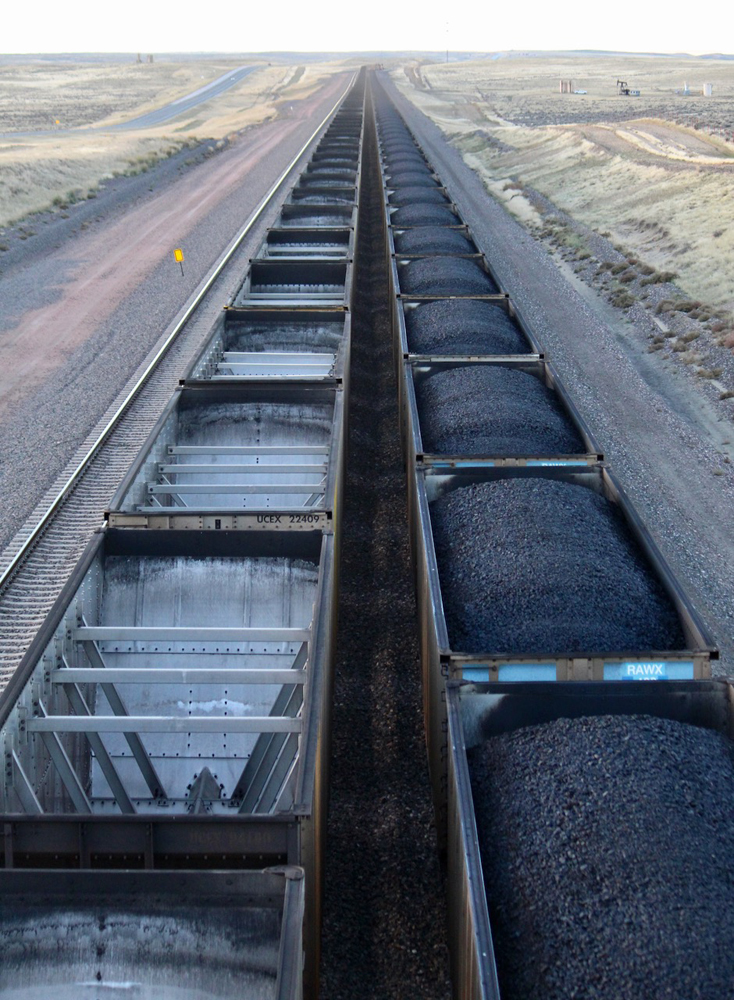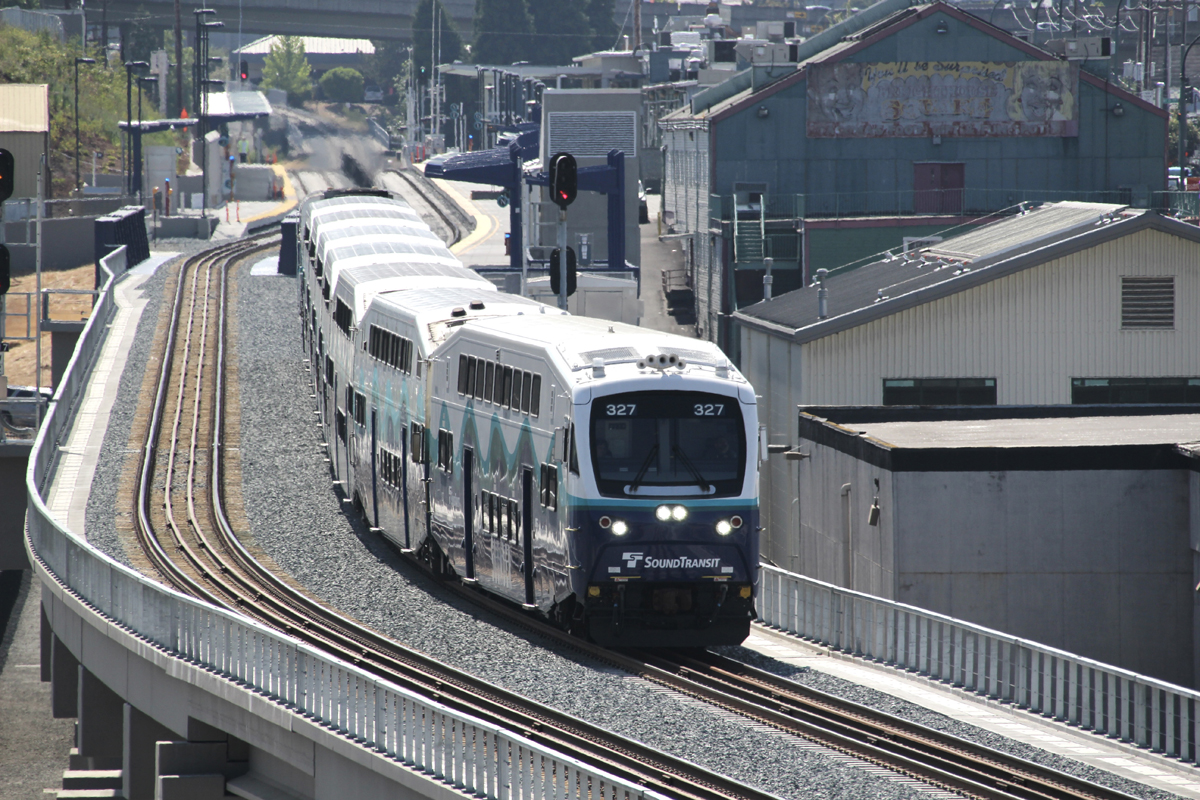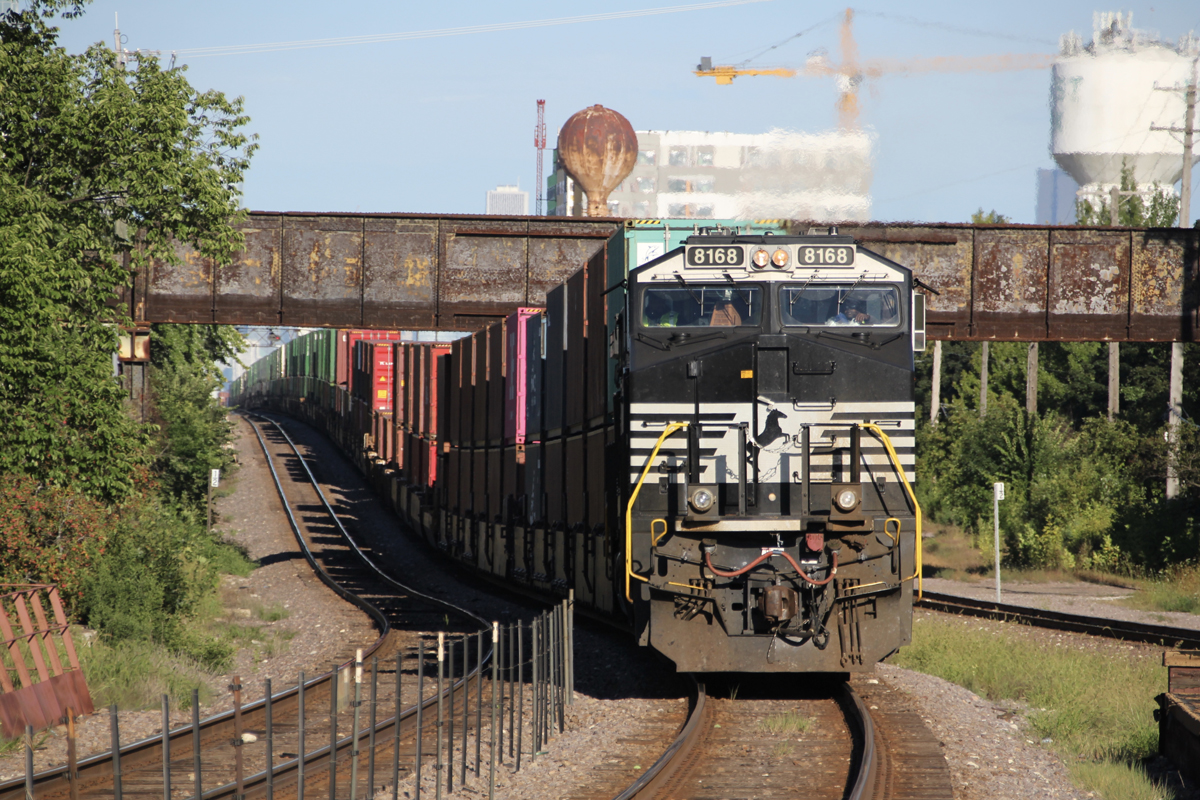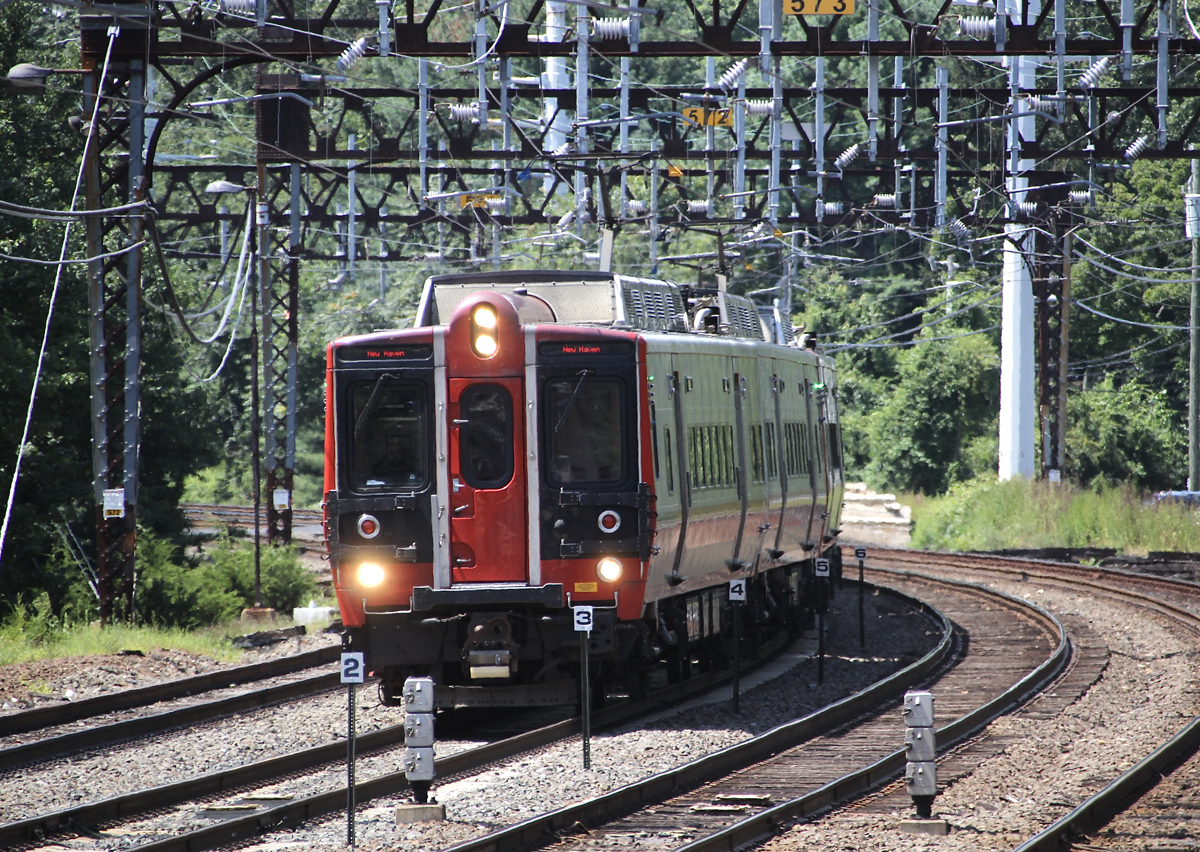
WASHINGTON — Federal regulators today ordered BNSF Railway to haul more coal from Navajo Transitional Energy Co.’s Spring Creek mine in Montana to tidewater in British Columbia.
The Surface Transportation Board’s 3-2 decision, which stemmed from a common-carrier complaint and emergency service order request from the coal producer, requires BNSF to transport 4.2 million tons of coal from the Powder River Basin mine to the Westshore Terminals complex in Delta, British Columbia, this year.
BNSF also will be required to move an additional one million tons this year as additional coal train sets and train crews become available. The board’s order effectively requires BNSF to handle 23 trains per month of coal beginning immediately, and an additional six trains per month as train sets and crews become available.
“The common-carrier obligation is a core tenet of the Board’s regulation of the freight railroad industry and is a pillar of the railroads’ responsibility to our country’s economy,” STB Chairman Martin J. Oberman said in a statement. “Today’s decision reflects the majority’s finding that the common carrier obligation requires a railroad to provide service on a customer’s request that is within the railroad’s capacity to provide.”
Oberman added that the board has previously noted that, “The common-carrier duty reflects the well-established principle that railroads ‘are held to a higher standard of responsibility than most private enterprises.’”
NTEC sought to move additional coal this year due to favorable export coal prices. BNSF declined to meet NTEC’s targets, however, arguing that it lacked capacity to handle additional coal from NTEC and that increasing service for NTEC would mean taking it away from other coal producers who have contracts with the railroad. NTEC’s coal has been moving under tariffs rather than a contract.
But the STB said the record showed that BNSF could comply with the order while still providing service to other Powder River Basin coal producers.
The board also said NTEC prevailed on the four-part test for granting injunctive relief.
Board members Patrick Fuchs and Michelle Schultz dissented with separate expressions.














Is wishing death on the Green Crowd / Greenies supposed to be funny?
I believe I asked this before (with no answers ) but how many coal trains were the BNSF handling at their peak during the good old days on the Powder River coal operations. I believe they had plenty of power, equipment and crews back in the heyday of coal movement.
Overstepping their boundaries a little bit are we STB and Oberman? Do you know BNSF’s capacity? Do you know that contracts override tariffs? So if other producers have contracts that include the volume(and they most certainly include the volume to be shipped) yet NETC is using tariff rates(which actually make BNSF more money so this is not about increased revenue). Then someone has their head stuck in the ground. Common carrier status does not mean they have to provide EVERY service requested of them, especially when they’re already providing service, just not the amount of service the customer would like.
Thank you John Held for your comment; I agree. I found Melvin Kreplach way beyond the acceptable.
Regarding Melvin Kreplach post: even though it is a satirical post, think about the undertone of his comment: should someone disagree with my opinion, their consequence should be death. Is this what we have become on this forum? In our nation?
Just as the comment “kill all the lawyers” is an indictment of the US legal system and its complexity, so the comments below express an exasperation with some of the stridency they see in the efforts to be green.
Thank you Trains for providing this News. And I can even read it with minor errors, no problem. Sorry others have so many probems with it. See what I did there? Lol
Tommy,
As others have pointed out before me, the people who write these articles are being paid to do so. Many posters on this forum imply (or state outright) that railroad executives aren’t earning their money; in my estimation, neither are the people at Trains. I wince at, but don’t comment on, the mistakes (deliberate or otherwise) made by other posters because they aren’t being paid to post. I’m retired now, but if had performed my job with the same inattention to detail the paid writers exhibit, I wouldn’t have had a job for long. On second thought, however, given today’s employment climate, I probably would still be employed, and a number of people would be dead due to my ineptitude. Granted, writing an article for hobbyists is not as likely to have immediate life-threatening consequences as writing safety-critical software for tactical missiles, but the same work ethic should prevail regardless. Illiteracy, like stupidity, is both pernicious and contagious. So, to quote a line from one of my all-time favorite movies, “Laugh while you can, Monkey Boy!”
“STB orders BNSF to haul more coal for in Powder River Basin company” ???
They can’t even proofread their own flippin’ headline…
Sorry, I was thinking this coal was going to a Canadian port
James, this coal is probably going to Roberts Bank BC.
My question is BNSF has to hand this coal off to CP. Do they have the capacity to handle the increase?
Roberts Bank coal trains don’t get handed off to CP..
Does BNSF have coal cars in storage If so they will have to reactivate some. If not other class 1s should have some for lease or private companies will have some.
I just discovered that the coal-fired plant in Pleasant Prairie, WS is gone. Not just decommissioned, but actually GONE! (I suppose I do need to get out more in the daytime…) So I suppose that the hoppers with the WEPX reporting marks should be available (even though they were handled by CP or UP).
Cue the howling from the Green Crowd about how the emissions from all of this export coal will wreck the climate…
Add a few gondolas to each train, fill them with Greenies, and send them to the same destination as the coal. Attach a note saying the Greenies are being provided at no extra charge and may be used as supplemental fuel .
2 points
1. It would be interesting to see the two dissenting voters rational
2. A refreshing comment by Oberman, ““The common-carrier duty reflects the well-established principle that railroads ‘are held to a higher standard of responsibility than most private enterprises.’” endmrw0623231340
You can read the dissent at the end of the opinion; that’s the link in the second paragraph of the story.